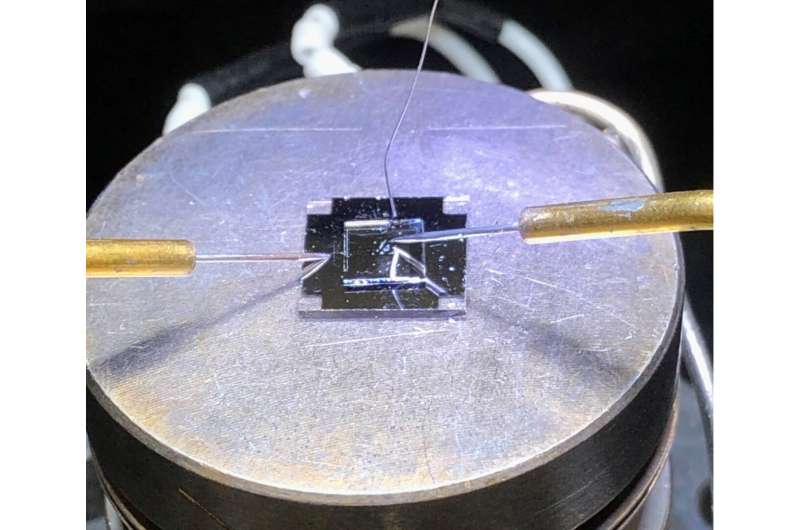Scientists develop solid-state electrochemical thermal transistor

In modern electronics, a large amount of heat is produced as waste during usage—this is why devices such as laptops and mobile phones become warm during use, and require cooling solutions. In the last decade, the concept of managing this heat using electricity has been tested, leading to the development of electrochemical thermal transistors—devices that can be used to control heat flow with electrical signals.
Currently, liquid-state thermal transistors are in use, but have critical limitations: chiefly, any leakage causes the device to stop working.
A research team at Hokkaido University lead by Professor Hiromichi Ohta at the Research Institute for Electronic science has developed the first solid-state electrochemical thermal transistor. Their invention, described in the journal Advanced Functional Materials, is much more stable than and just as effective as current liquid-state thermal transistors.
“A thermal transistor consists broadly of two materials, the active material and the switching material,” explains Ohta. “The active material has changeable thermal conductivity (????), and the switching material is used to control the thermal conductivity of the active material.”
The team constructed their thermal transistor on a yttrium oxide-stabilized zirconium oxide base, which also functioned as the switching material, and used strontium cobalt oxide as the active material. Platinum electrodes were used to supply the power required to control the transistor.
The thermal conductivity of the active material in the “on” state was comparable to some liquid-state thermal transistors. In general, thermal conductivity of the active material was four times higher in the “on” state compared to the “off” state. Further, the transistor was stable over 10 use cycles, better than some current liquid-state thermal transistors. This behavior was tested across more than 20 separately fabricated thermal transistors, ensuring the results were reproducible. The only drawback was the operating temperature of around 300°C.
“Our findings show that solid-state electrochemical thermal transistors have the potential to be just as effective as liquid-state electrochemical thermal transistors, with none of their limitations,” concludes Ohta. “The main hurdle to developing practical thermal transistors is the high resistance of the switching material, and hence a high operating temperature. This will be the focus of our future research.”
More information:
Qian Yang et al, Solid‐State Electrochemical Thermal Transistors, Advanced Functional Materials (2023). DOI: 10.1002/adfm.202214939
Citation:
Scientists develop solid-state electrochemical thermal transistor (2023, February 21)
retrieved 21 February 2023
from https://techxplore.com/news/2023-02-scientists-solid-state-electrochemical-thermal-transistor.html
This document is subject to copyright. Apart from any fair dealing for the purpose of private study or research, no
part may be reproduced without the written permission. The content is provided for information purposes only.
For all the latest Technology News Click Here
For the latest news and updates, follow us on Google News.
